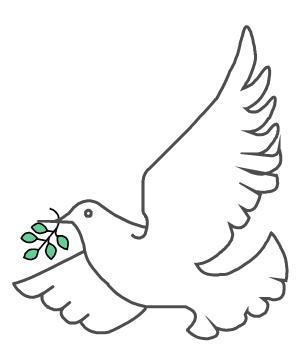|
Viewpoint - Revd Cadmore 13th March 09
By the Revd Albert Cadmore
Parish Priest at Horsey & West Somerton
‘Science and religion’
When visiting a school a few days ago, I saw a poster displaying the quotation, ‘ Science without rel igion is lme, religion without science is blind.’ These words are attributed to the famous scientist igion is lme, religion without science is blind.’ These words are attributed to the famous scientist Albert Einstein and they certainly got me thinking about the ‘Science and Religion’ debate that has been revived this year with the celebration of the 200 th anniversary of Charles Darwin’s birth.
Both Darwin in the 19th century and Einstein a hundred years later, were more concerned with exploring the relationship between science and religion than with seeking to choose between them.
As a young man Charles Darwin was training to be an Anglican clergyman at Cambridge University but his faith was challenged and lost to a degree, to some extent as a reaction to personal tragedies. However, he never described himself as an atheist but considered himself an agnostic.
Einstein sought to reconcile religious and scientific thinking as he searched for a greater understanding of the mystery of life. His problem with religion was that whilst he never believed in what he called ‘a personal God’, he always acknowledged the impossibility of what he described as ‘a non-created universe’. He once remarked to a young physicist: ‘I want to know how God created this w  orld, I am not interested in this or that phenomenon, in the spectrum of this or that element. I want to know His thoughts, the rest are details.’
The fact that such eminent scientists reflected so earnestly on such issues is an example for us today. Those of us with a Christian faith may well be saddened at the thought of Darwin losing his earlier zeal, but having doubts is not always a bad thing.
Reflecting on the death of a friend, Alfred Tennyson found comfort in his faith, and as he questioned his faith, in his poem, In Memoriam, he wrote the immortal lines, ‘There lives more faith in honest doubt, believe me, than in half the creeds.’ However strong or weak our faith, we need to acknowledge our doubts, and realise that through questioning can come a deepening of faith. It is not scientific proof we seek but a trust in the Creator God that both Darwin and Einstein tried so hard to understand.
In the Letter to the Hebrews, we can read, ‘Faith gives substance to our hopes and convinces us of realities we do not see.’ Whilst it is right and proper to acquire |
|
|
|